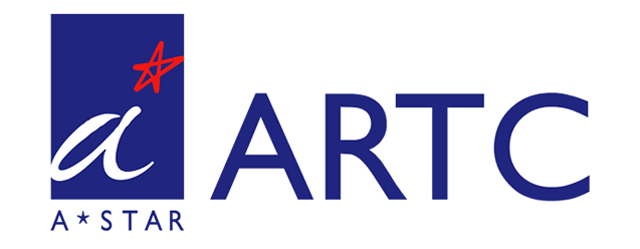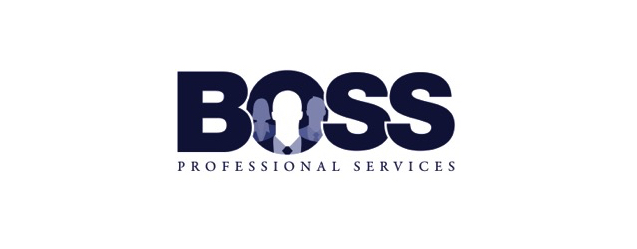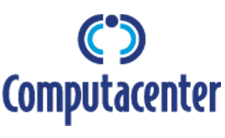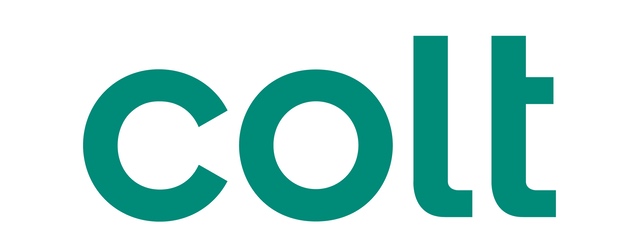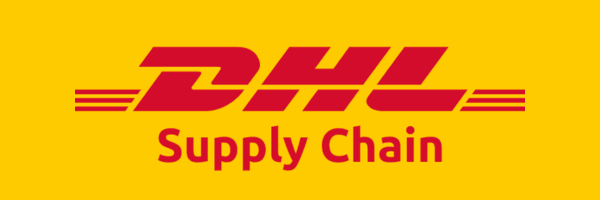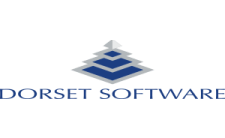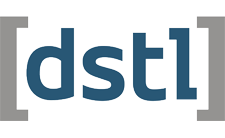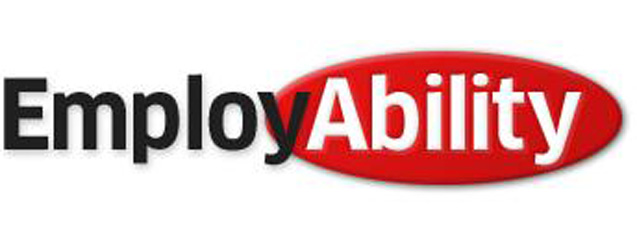Jobs within the IT sector have never been more in demand, with computer skills becoming ever more important in the workplace. A career in IT opens up a range of possibilities…
Career prospects
- Software Architect
- Programmer
- Technical Engineer
- Operations Analyst
- Technical Consultant
- Project Manager
- Web Designer
What do employers look for?
As with most careers, work experience will set you apart from your competitors.
Is it the right career for me?
Some IT-based roles won’t actually require you to have a computer science or IT-based degree, and some companies offer training schemes as part of your job.
You will also need to be an effective communicator, as you may find you are dealing with clients over the phone and so will need to be clear if giving any assistance verbally or written.
- Analytical
- Problem solver
- Organised
- Investigative thinker
- Good Communicator
- Patience
Computer skills are becoming increasingly important in the workplace, especially in offices. It’s well worth learning how to use email and the Web, and getting to know your way around a Windows PC. Also, familiarise yourself with popular office software packages such as word processors, spreadsheets, databases and presentations.
Job Prospects
1. Programmers
Alternative names are software engineer or developer. The job involves writing instructions in a computer language to achieve a task. In practice you’ll probably work in a team, each responsible for a small part of a bigger program. You’ll only get to work on an entire big program if you’re a manager supervising other programmers.
Personality: You need to be methodical, comfortable with logic – being good at maths would be handy – and happy to sit in front of a computer screen all day.
Qualifications: Most big firms only recruit IT graduates, or maybe non-IT graduates, for programming jobs. But you can get a programming job in a smaller company with an NVQ. The important thing is to get a work placement afterwards and continue to learn on the job.
Whether you’re qualified or not, potential employers will probably give you an aptitude test. This won’t expect you to know computer programming languages but you will need to use programming logic to solve problems; for example, using a ‘loop’ to repeat the same instruction over again.
Website development is a less technical area. It demands fewer programming skills but more of an eye for design and marketing. You can teach yourself the basics or go to evening classes. The downside is that since the ‘dot com boom’ there are lots of website designers out there.
2. Operators
The job: Operators are responsible for setting up and maintaining computer systems, especially hardware. They may be responsible for a particular area – such as the network that connects computers in an office or the database system that staff use. Being an operator is more physical and hands-on than being a programmer. If something needs checking on a computer network, for example, you’ll be the person under the desk fiddling with cables and using a voltmeter. You’ll also use software to monitor the system; for example, checking graphs of the flow of traffic on the network.
Personality: You need to be comfortable getting physical with technology, the sort of person who would consider taking a screwdriver to their personal stereo if it was broken.
Qualifications: You don’t have to be a graduate, but any qualifications will help – even GCSEs. Again potential employers might give you an aptitude test. Employers are often willing to train operators on the job – look for a ‘trainee operations’ position. Or you could start off by working in support and then move over into operations. Once in an operations job, your employer will send you on training courses if you need to know more about a particular system or if they want you to specialise in a particular area.
3. Support staff
The job: You don’t need to know much about computers to get a job in support, where you help other people with their computer problems. Companies are happy for you to start at the bottom and learn on the job. Jobs include help desk support, where you wait for calls to come in from users whose computers have gone wrong, and operator support, where you might keep an eye on programmes running overnight and look out for problems.
Personality: You need to be good at dealing with people, especially when they’re upset about their computer going wrong.
Qualifications: No formal qualifications necessary, although again anything helps.
Average Salary varies depending on your role but people in IT fare relatively well, with an average salary of £40,000.
Advanced is a leading provider of software and IT services to the UK public, private and not for profit sectors. We enable organisations to improve efficiency, reduce costs and drive growth through innovative and cost effective software solutions. Covering three main areas: Health & Care, Business Solutions and Manager Services, we offer premium services to […]
Advanced Remanufacturing Technology Centre, A*Star
Our Vision: To be the World renowned Centre of Excellence for Advanced Manufacturing and Remanufacturing technologies, processes and systems underpinned by specialist knowledge and skills. The Advanced Remanufacturing and Technology Centre is a new industry-led centre by the Agency for Science, Technology and Research. Based on a contemporary business model of public-private partnership, the centre […]
Who We Are Amazon is made up of builders and innovators, all of whom bring diverse backgrounds, brilliant ideas and varying points of view with them. Our rich tapestry of team members, from all around the world, means that we’re looking for great minds just like yours. Together, we’re pushing the boundaries of possible. […]
Atos powers progress. We’re more than just a global information technology services company. Our business technologists really listen to our clients and use genuine technical understanding and strategic business acumen to produce innovative answers to our client’s business challenges. What is a business technologist? A business technologist is more than just a ‘techie’. Rather a […]
Worldwide financial communication This is more than what we offer. It is who we are, in 126 countries. Constantly making ourselves better, asking more of ourselves. Giving more to the people who count on us for news and information. We helped change the way that the world looks at financial news and information, and that […]
Boss Professional Services Ltd are an established recruitment consultancy based in Oval, London. Operating since 2014 we have seen consistent growth by over 50% year on year in relation to staff, turnover and profit. We are now looking to increase personnel headcount in certain areas of our business including Medical Devices, Specialist IT & Energy/Ship […]
Life today is built on connectivity. As a global innovations company, we use the power of communications to make a better world. From broadband and TV to mobile, we’re driven by the exhilaration of building an ever-growing range of services that help our customers get more out of life. But there’s so much more to […]
CGP has grown quickly to become the most successful and respected educational publisher in the UK. Whether you’re a student or a parent with school aged children studying for exams, you’ll recognise the popular books which cover everything from Key Stage 1 to A-Level. They’re loved by students because they’re unique – they present all […]
ConSol Partners are a leading recruitment consultancy based in the heart of the City with a specialism headhunting key talent for digital media, internet and some of the biggest brands in the world. As a highly successful company we have rapid growth plans on a worldwide basis. Our Headquarters are in London, with regional offices […]
Cerillion plc is a world leading provider of business support systems with more than 20 years’ experience delivering its solutions to the telecommunications industry. Cerillion plc floated on the London Stock Market in early 2016, following a successful period as a growing private company. Joining Cerillion at this early stage as a public company offers […]
Computacenter is a leading independent provider of IT infrastructure services. We work at the heart of digitisation, advising organisations on IT strategy, implementing the most appropriate technology and managing our customers’ infrastructures. We offer a friendly, open working environment without too much fuss about hierarchy. We are looking for professionals with diverse competencies, personalities and […]
With Consulting still a core part of our offer, we’re active in over 30 specialist disciplines, which means that whatever area of professional services you’re interested. “Our breadth and depth of service means we can offer you a wide range of career opportunities.” Providing fully integrated advice across Audit, Tax, Consulting and Corporate Finance, we […]
About us Colt is a global telecommunications company, with offices in 19 countries and staff in Europe, North America and Asia. With customers including 18 of the top 25 global financial institutions, we aim to be the most customer-oriented business in our industry. Don’t forget to follow our Colt Graduate Scheme social accounts for all […]
At Deutsche Bank, we’re changing what it means to be a bank. It’s about making a positive difference and cultivating new perspectives. That’s why with us, your ideas have impact. We’re always looking for creative thinkers who are ready to make a difference from day one. If you want the opportunity to shape your own […]
Founded in 1969, DHL is the world’s leading logistics company. Our 395,000 people in over 220 countries and territories work every day to help our customers cross borders, reach new markets and grow their businesses. Behind every weekly shop, every vital prescription and every new car is a business that relies on an efficient, reliable, […]
Dixons Carphone is Europe’s number one electrical and telecommunications retailer and services company, with more than 40,000 colleagues across nine countries, including the UK and Ireland. Every day, we use our people’s expertise to reach out and help new customers. What’s more – we’re exploring extraordinary new markets, from wellness to security, so that in an ever more connected […]
Our business is about people and technology. We believe people underpin our success and technology is the tool that drives transformation, efficiency, and growth for our customers. Based on the south coast, we give our graduates full training and a diverse, challenging career. Waitrose, Barclays, and RM Education are just some of the organisations that […]
Dstl – Defence Science and Technology Laboratory
The Defence Science and Technology Laboratory (Dstl) maximises the impact of science and technology on UK defence and security – across government. We work with the best people with the best ideas – from small companies to world-class universities, large defence companies … even other nations. Together we develop battle-winning technologies, based on deep and […]
Are you a young professional with a 2.1 or above? Are you looking to gain experience at top-tier consultancies, leading corporates or fast-growing start-ups? If you’re ready to start your next commercial challenge, then apply to Freshminds today to find analytical or strategic opportunities on a permanent or project basis. Freshminds is a boutique recruitment […]
EmployAbility is the not-for-profit organisation dedicated to assisting students and graduates who have dyslexia, any other disability, long term illness or mental health condition into employment. At EmployAbility we offer free support, guidance and advice throughout the recruitment process and beyond, including: * internship and graduate opportunities * how to produce effective application forms and […]
MISSION STATEMENT To deliver market-leading digital products and services by having a happy and engaged workforce. ABOUT US We are a London-based digital product and service company where engagement and happiness is at the core of all we do. We believe that having a happy and highly engaged team improves our process and results in […]
Challenging. Inspiring. Life-changing. Be part of Experian’s vision and experience a career that encompasses all of this and more. Our world is built on data. It’s all around us, growing in power and influence every day. We believe data has the power to change lives. By helping people and organisations make the most of their […]
About FDM Group FDM Group is an award-winning company and the market leader in the Recruit, Train and Deploy industry. We are renowned for our dynamic Careers Programme, which transforms graduates, returners to work and ex-forces personnel into IT and business professionals before deploying them across our client base. We are proud of our diverse […]
We are the London chapter of a global organisation focused on empowering, educating and engaging with women interested in technology and entrepreneurship. Girls in Tech aims to accelerate the growth of innovative women entering into the high-tech industry and building startups. We achieve this through the creation of proprietary, innovative programming and strategic global partnerships. Girls in […]
ABOUT GLOBALDATA We are a world-class data and analytics company, helping our 4,000 strong client base to decode the future to be more successful and innovative. We work together to turn raw data into trusted intelligence, deliver leading edge content and discussion through our events, and provide bespoke consulting solutions; serving some of the most […]
Starting out in Silicon Valley, Houzz has become the leading home renovation and design platform in the world. We have a highly engaged community of over 40 million unique monthly users who leverage our technologies to find inspiration for their next project, connect with over 2.3 million home design professionals and discover products in the […]
We founded Kubrick to offer organisations another way to solve their data challenges. We do this by employing the best junior professionals and preparing them in our data labs to become the next generation of data specialists. We knew from day one at Kubrick, the way in which we developed our people had to set […]
Mitie provides facilities management, consultancy, project management and a range of specialist services that connect people with innovation and technology; helping our clients go beyond FM to the Connected Workspace. We work in partnership with organisations to deliver long-term value, offering a wide range of services – from real estate and energy consultancy, compliance, risk […]
We believe that in an environment where people are motivated and supported by their colleagues, individuals will discover their strengths. What we do Meltwater is the global leading media intelligence platform. Our software combines the power of AI with the largest news and social media database in the industry, to bring our clients advanced Media […]
The Metropolitan Police Service (MPS) is the territorial police force responsible for law enforcement in Greater London. The Met also has significant national responsibilities, such as co-ordinating and leading on UK-wide national counter-terrorism matters, the protection of the senior members of the British Royal Family and also the protection of members of The Cabinet and […]
NHS – The Princess Grace Hospital
A healthcare organisation responsible for the successful management and delivery of healthcare services provided to over two million people living in North West London, ensuring local residents receive high quality, modern and sustainable healthcare services.
We are Nicoll Curtin, the award-winning global Fintech & Change Recruitment agency, with the APSCo 2018 International Recruitment Company of the Year as the latest feather in our cap. We connect outstanding talent with industry-leading companies and we aim to be the best at what we do. Since we started back in 1999, we have […]
PatSnap is one of the fastest-growing tech companies in the UK and Europe, coming in at number 25 in the 2018 Sunday Times Tech Track 100. We are a global, hyper-growth, venture-backed start-up with offices in London, Beijing, Shanghai, Suzhou, Singapore, Toronto and LA. We provide an IP and innovation analytics software platform to R&D-intensive […]
QA is a private UK Higher Education provider offering foundation programmes through to postgraduate degrees, through partnerships with UK-based universities. A wide range of subject areas are covered through QA’s partnerships including: Accounting Business Computing Cyber Security Digital Marketing Events Management Project Management Web Development and many more All of these courses are delivered in […]
As a company of 295 people, we may not be as big and well known as some of the other household names listed on Bright Network’s website. But what we lack in size, we more than make up for in ambition and opportunity. We’re a fast-growing business looking for skilled graduates interested in a career […]
RED Academy is a technology & design school with an agency-style environment that focuses on real client projects in UX/UI design, web & app development & digital marketing. More than that, we’re a family. A community. A collection of the brightest minds in the industry, coming together to develop the next generation of digital professionals. […]
We are a world-class organisation – and we need world-class graduates to lead our multi-skilled teams. Our challenging officer roles require dynamic people in skills ranging from engineering to nursing, and from air operations to logistics. The training package is first-rate and it’s backed by major lifestyle benefits and extensive travel.
We are a leading provider of IT infrastructure to the corporate and public sectors. We care passionately about two things: outstanding employee satisfaction and world-class customer service. We believe the former drives the latter. We provide organisations with software licensing, client computing, data centre infrastructure, networking and security combined with all the services they require […]
Rubix Technology Solutions provides IT solutions and services to organisations across all verticals globally. Rubix focus on business/IT challenges and offer IT solutions that meet with the organisations worldwide strategy and objectives. Our approach is to unify Hybrid Cloud Solutions, Software, Connectivity, DR and Security to enable organisations to provide fast, agile, resilient and secure IT […]
29 years of experience. 23 million customers. Seven countries. Sky, Europe’s leading entertainment and communications business, is more than just television, mobile and broadband. With pioneering technology, innovative minds and forward-thinking teams, they make the future happen. People drive Sky’s success. With programmes in Software Development, Technology, or Commercial (Finance, Marketing and more), Sky looks […]
Sopra Steria is the European leader in digital transformation. We provide one of the most comprehensive portfolios of end to end service offerings in the market: Consulting, Systems Integration, Software Development and Business Process Services. We are trusted by leading organisations in the public and private sectors to deliver successful digital transformation programmes and support […]
We are one of the UK’s leading IT Solutions Providers and Systems Integrators, and our teams work with thousands of customers within the corporate and public workspace across the country. Our culture is definitely “work hard play hard” as we firmly believe that a fulfilled and motivated workforce makes for very satisfied customers.
Sparta Global is a leading provider of technology consulting services providing cross-functional teams to power short-term and long-term projects with relevant skills within government and private sector organisations; fintech, media, insurance, retail, legal, travel, property, technology, start-ups – for over a hundred organisations within the UK. We invest in recruiting high-calibre graduates and build them […]
Summit is a change maker in online retailing. We’ve worked with some of Europe’s most successful retailers and brands, helping them to make more money from retailing online. Our purpose is simple and commercial: to make it more likely that people buy from our clients than anyone else. Our unique online retail ‘value chain’ provides […]
Synergy Networxx is all about taking graduate talent and opening them up to new possibilities. At our state-of-the-art facilities you will receive specialist training from qualified instructors to gain invaluable hands-on experience combined with the Cisco Certifications that employers are looking for. Regardless of your background, Synergy Networxx provides a flexible hands-on IT Training Programme on […]
You have the power to change things. Change technology, change a business, change an industry, even change society. That’s what makes working at Telefonica so inspiring. We have a big goal: to become the world’s leading digital telco company and open up the possibilities of technology to everyone. We’ve already started, and we’re making great […]
Tessella is a global software services and IT consultancy company that works with some of the world’s biggest and most well-known organisations to solve complex real world problems. We are proud that our work makes the world a better place to live in, from developing smarter drug trials and minimizing risk in oil and gas […]
Take control. Sell yourself the right way. How can you stand out head and shoulders above the rest? Take control of what potential employers see and read about you on the internet. Control your personal brand Having your own .uk domain will put you in control and take you a step closer to creating your […]
TK Maxx / HomeSense, part of TJX Europe
You might not have heard of TJX Europe, but you’ve probably heard of our brands – TK Maxx and Homesense. We’re part of the world’s leading off-price apparel and home fashion retailer – TJX Companies, Inc. Our story began in the United States in 1977 with the opening of two TJ Maxx stores in Massachusetts. […]
uLeague is a career service platform that offers professional pathways in Digital Marketing, Accounting, Entrepreneurship, Trading, and Banking & Finance, which are accompanied by a suite of tech-enabled tools for professional development. We pick the courses for the user based on their professional goals, we then tailor the learning pathway to suit each person’s level of […]
About Us At Vista, we love cinema- we live it, work it, breathe it. Our mission is to enhance the cinema experience for all. We’re looking for smart enthusiastic team players to join our UK based, world-leading software team to fulfil our goal of global domination.
Veritas Prime, based on our core values and principles, means “Truth and Excellence”. We are dedicated to providing clients with top tier consulting services in the Human Capital Management Technology space. Five years ago, Veritas Prime was founded by 3 partners who saw a need to deliver quality consulting services to clients, delivering high-tech solutions […]
Remote internships are available with companies of varying size, sector and industry so that you can gain valuable experience with companies tailored to your choice and so boost your CV. There are fantastic opportunities for you to do an internship with international or domestic companies, without having to worry about the travel and living costs. […]
Vodafone is a leader in technology communications through mobile, fixed, broadband and TV. We have extensive experience in connectivity, convergence and the Internet of Things, as well as championing mobile financial services and digital transformation in emerging markets. Since making the first mobile call in the UK on 1 January 1985, Vodafone has grown into […]
bet365 is the world’s favourite online sports betting company serving over 80 million customers across the globe and employing over 6,000 people. With a record for innovation, we offer award-winning, industry-leading betting and gaming experiences and pride ourselves on the standards of customer service we deliver. Our game-changing In-Play betting product and comprehensive sports Live Streaming […]
The Writemedia Partnership is a multi-skilled agency based in Pembrokeshire operating across the UK. Services include website design & development, web software development for corporate, tourism and sports sectors. We aren’t the biggest agency in the UK, but we are highly creative, care about clients businesses and are results driven. This shows in the ideas […]
Brightsparks is a unique business focused on the Student and Graduate Market; we directly employ thousands of students in temporary roles every year and work with them and their wider network to launch them into their careers once they graduate. We are delighted to partner with Xchanging to manage their graduate campaign. Xchanging is a […]
About Yieldify Yieldify is already being used by some of the largest websites in the UK and is backed by top angel investors. It uses algorithms to create engaging and personalised overlay messages to visitors depending on their mouse movements, speed and user behaviour. Yieldify allows websites to maximise their lead generation and sales from […]


